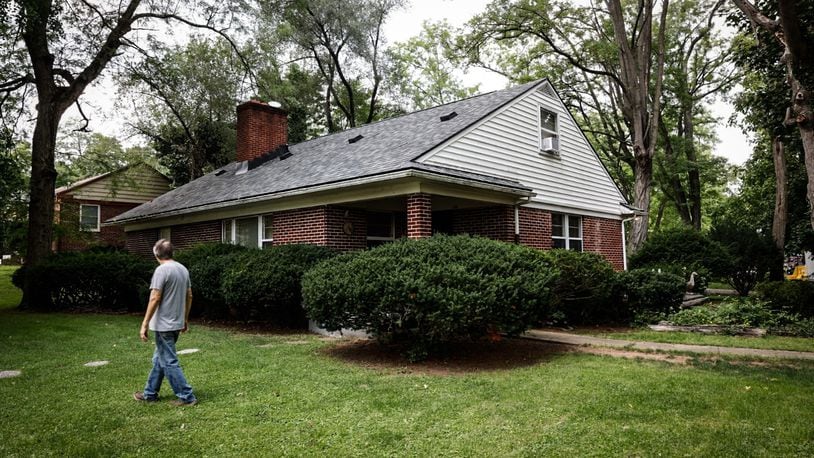The Ohio Attorney General’s Office filed the lien shortly after the April 2014 death of Applegate’s partner Brenda Pierce, a Medicaid recipient whose name was on the home’s deed, he said.
» How a phone call to the Dayton Daily News grew into calls for reforming a state program
“It took a while. And it saved me attorney fees,” he said of the state’s recent action. “I was going to go after them.”
Credit: Jim Noelker
Credit: Jim Noelker
The state’s decision follows a Dayton Daily News series investigating Ohio’s Medicaid estate recovery program, including an article on Applegate’s plight. When contacted by this news organization about Applegate’s lien last year, the attorney general’s office said it was reviewing the issue.
“The lien was released because Mr. Applegate was able to show the property belongs to him, rather than the Medicaid recipient,” Dominic Binkley of the AG’s office said in an email Friday. “The recipient was only listed on the deed to ensure she had a place to live in the event of Mr. Applegate’s death.”
Estate recovery is federally mandated, but Ohio is among is among 15 states that place liens on property of dead Medicaid recipients as a way for the state to recoup its paid benefits, a 2021 study found.
Applegate, 70, said he received a telephone call last week from an attorney affiliated with the AG’s office, which oversees estate recovery for Ohio Medicaid.
After the call, “I said Wow. Finally. I think a wrong has been righted,” Applegate said.
Applegate said he did not know his partner he had lived with for 19 years was a Medicaid recipient until he was told by the state.
Shortly after Pierce died, Applegate said he received a letter from the state about its lien filing.
After several phone calls, he sent a letter to then-Attorney General Mike DeWine, who responded with notice that a “stop” had been placed on the case, Applegate said.
Applegate said several weeks ago he wrote to current Attorney General Dave Yost. The letter explained that Pierce’s name was on the deed because he gave her power of attorney due to his 12-hour, second shift work schedule.
His letter also stated that Applegate’s name was on the home loan and that he made all the payments.
The attorney who called “read it too and they totally decided that it was in the best interest not to pursue it,” he said.
Lien releases are “a frequent occurrence following our negotiations,” Binkley said. “We have never foreclosed on any properties.”
But the state collected more than $366 million through the estate recovery program since 2017 and was among the top five nationally in 2019, the Medicaid and CHIP Payment and Access Commission (MACPAC) said in a 2021 study, its most recent data.
The program “falls on those with modest means, and may disproportionally affect people of color and perpetuate intergenerational poverty,” according to the study.
The study found the average household net worth of deceased Medicaid beneficiaries ages 65 and older was $46,692 and the average home equity was $27,419.
In a message to the Dayton Daily News, Applegate said the article focusing on his lien issue helped in the Ohio AG’s decision.
“I think so,” he said. “I think it may have brought a few of the stories to light.”
Applegate said now he is focusing on making long-needed home repairs — “because we can do it without anything hovering over our heads” — and preparing a will designating Dillion Pierce, his partner’s 29-year-old grandson, as the recipient of his home.
“We raised him,” he said. “And he considers me Papaw.”
About the Author
